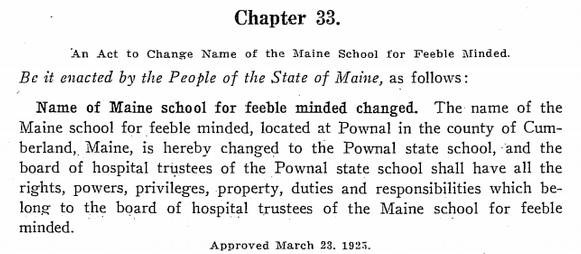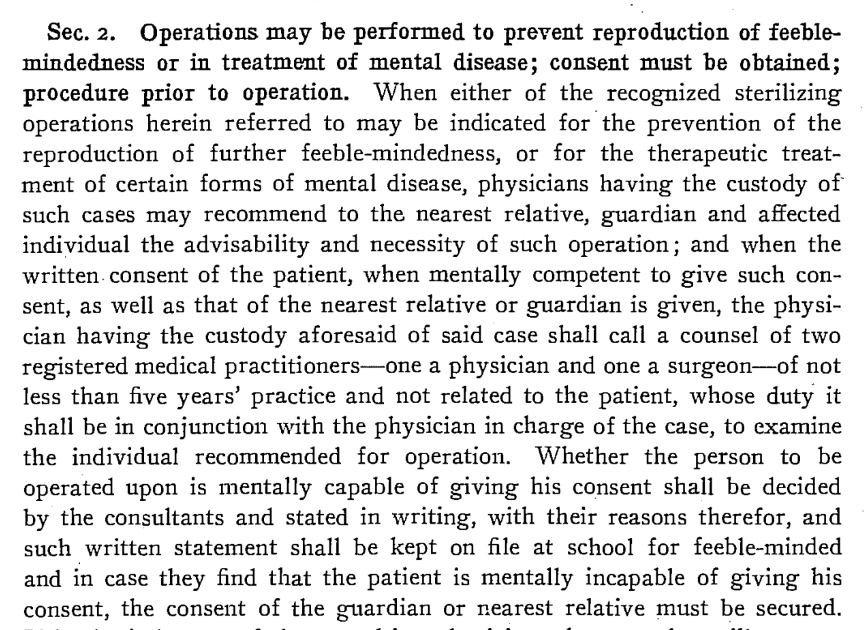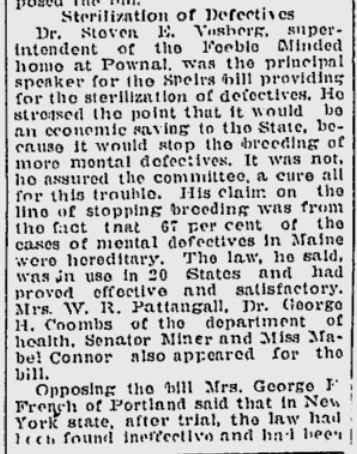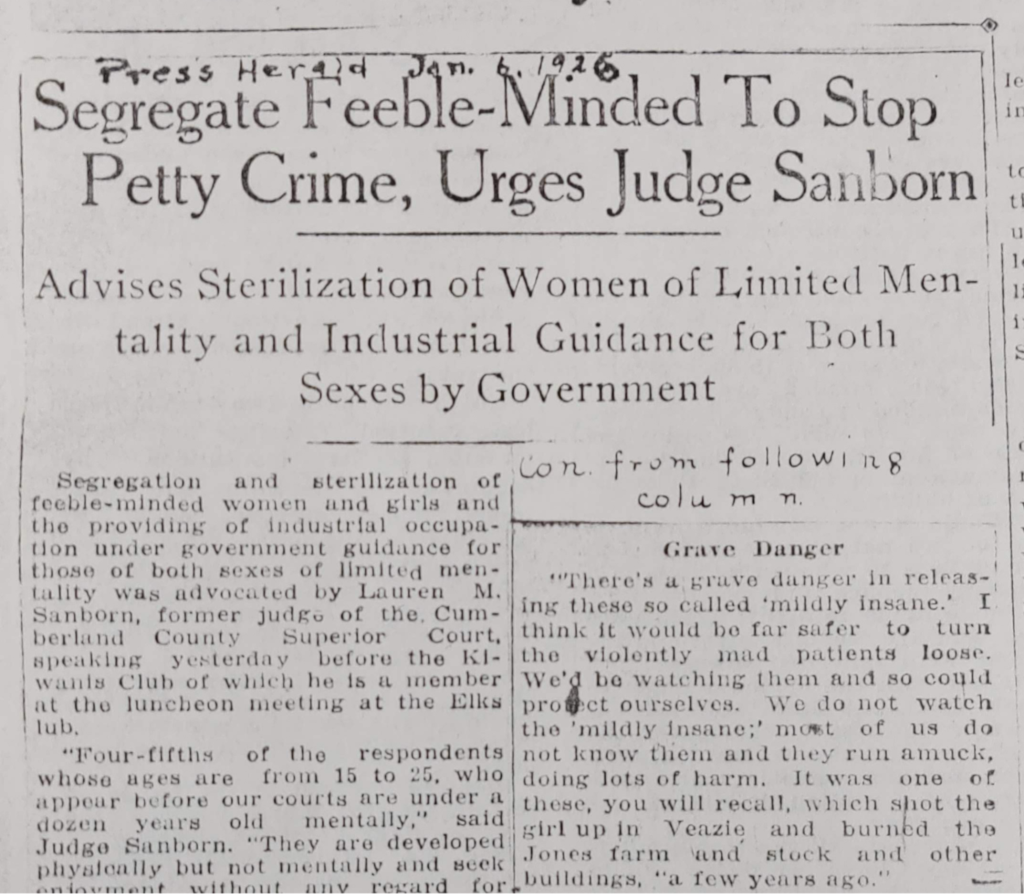This year the name of the institution was changed from the School for the Feeble Minded to Pownal State School.

In that same year, the 82nd Maine Legislature Maine passed a sterilization law to “prevent reproduction of feeble-mindedness or in treatment of mental disease.” One did not want those who had not “adapted” to modern society to have children who also would be the less fit. It usually applied more to women than men.

At the hearings on this bill, the Superintendent of the school, Stephen Vosburgh, spoke in favor of sterilization in terms both economic and eugenic:

Some women at Pineland were told they could not be released unless they had the surgery. The practice of sterilization continued through the 1960s.
Neither social Darwinism nor eugenics had any scientific basis.


